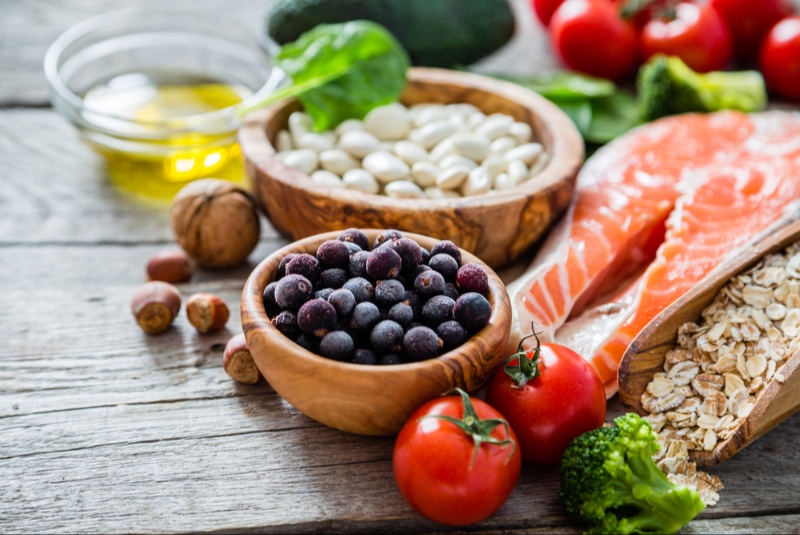Maintaining heart health is crucial for overall well-being, and diet plays a significant role in keeping the heart functioning optimally. This article explores the best foods to incorporate into your diet to support heart health. These foods not only contribute to the maintenance of healthy blood pressure and cholesterol levels but also offer a range of nutrients that support cardiovascular function. By integrating these foods into your daily diet, you can take a proactive step towards enhancing your heart health and reducing the risk of heart disease.
Whole Grains
Whole grains are a cornerstone of heart-healthy eating. They are rich in fiber, which can help reduce bad cholesterol (LDL) and minimize the risk of heart disease. Foods such as oatmeal, brown rice, barley, and whole wheat contain soluble fiber, which has been shown to improve blood cholesterol levels and support heart health. Including whole grains in your diet can also help manage blood sugar levels, contributing to overall cardiovascular health. Opt for whole grains over refined grains to maximize the health benefits, as they retain all parts of the grain, offering more fiber, vitamins, and minerals.
Leafy Green Vegetables
Leafy green vegetables like spinach, kale, and collard greens are packed with vitamins, minerals, and antioxidants. They are particularly high in vitamin K, which helps protect your arteries and promote proper blood clotting. Moreover, they are a great source of dietary nitrates, which have been shown to reduce blood pressure, decrease arterial stiffness, and improve the function of cells lining the blood vessels. Incorporating a variety of leafy greens into your diet can significantly contribute to heart health and reduce the risk of heart disease.
Berries
Berries, including strawberries, blueberries, blackberries, and raspberries, are full of important nutrients that play a central role in heart health. They are rich in antioxidants like anthocyanins, which protect against the oxidative stress and inflammation that contribute to the development of heart disease. Studies have found that consuming a diet high in berries can reduce several risk factors for heart disease, including blood pressure and cholesterol levels, as well as improve the functioning of your blood vessels.
Avocados
Avocados are an excellent source of heart-healthy monounsaturated fats, which have been linked to reduced levels of cholesterol and a lower risk of heart disease. They also contain potassium, a nutrient that’s essential for heart health. Potassium helps regulate blood pressure by balancing out the negative effects of salt. Adding avocados to your diet can improve lipid profiles by increasing HDL (good) cholesterol while reducing LDL (bad) cholesterol and triglycerides.
Fatty Fish and Omega-3s
Fatty fish like salmon, mackerel, sardines, and trout are rich in omega-3 fatty acids, which are pivotal for heart health. Omega-3s have been shown to decrease the risk of arrhythmias (abnormal heart rhythms), lower blood pressure, and reduce triglyceride levels. Consuming omega-3-rich foods or taking supplements can significantly benefit heart health by reducing inflammation and improving endothelial function, which refers to the health of the inner lining of your blood vessels.

Nuts and Seeds
Nuts and seeds are another great source of heart-healthy nutrients. Almonds, walnuts, flaxseeds, and chia seeds, for instance, provide a good dose of omega-3 fatty acids, fiber, and vitamin E, which help reduce blood pressure and lower the risk of heart disease. Nuts and seeds also have high levels of antioxidants, which can protect against oxidative stress and inflammation. Incorporating a variety of nuts and seeds into your diet can improve lipid profiles and support overall heart health.
Beans and Legumes
Beans and legumes, including lentils, chickpeas, black beans, and peas, are high in fiber, protein, and antioxidants, making them excellent foods for heart health. They help reduce LDL (bad) cholesterol, decrease blood pressure, and lower the risk of heart disease. Beans and legumes also offer a plant-based protein alternative, which can be beneficial for those looking to reduce meat consumption and improve heart health.
Dark Chocolate
Dark chocolate is not only delicious but also good for your heart when consumed in moderation. It contains flavonoids, which are antioxidants that help improve heart health by lowering blood pressure and improving blood flow to the heart and brain. Opt for dark chocolate that contains at least 70% cocoa content to maximize the health benefits while minimizing added sugars and fats.
Garlic
Garlic has been used for centuries as a natural remedy for various health conditions, including heart disease. It contains allicin, a compound that has been shown to have numerous benefits for heart health, including reducing blood pressure and cholesterol levels. Incorporating garlic into your diet can help prevent the buildup of plaque in the arteries, reducing the risk of heart conditions like atherosclerosis.
Olive Oil
Olive oil is a key component of the Mediterranean diet, which is widely recognized for its heart health benefits. It’s rich in monounsaturated fats, which are associated with reduced risks of heart disease and stroke. Olive oil also contains antioxidants that can protect your blood vessels and improve cholesterol levels. Using olive oil in cooking or as a salad dressing can significantly contribute to a heart-healthy diet.
Incorporating these foods into your diet can significantly improve heart health and reduce the risk of heart disease. It’s important to focus on a balanced diet, rich in fruits, vegetables, whole grains, and healthy fats, while minimizing the intake of processed foods, sugars, and saturated fats. Pairing a healthy diet with regular physical activity, not smoking, and maintaining a healthy weight can further enhance cardiovascular health. Remember, making small changes in your diet can lead to significant benefits for your heart and overall health.




